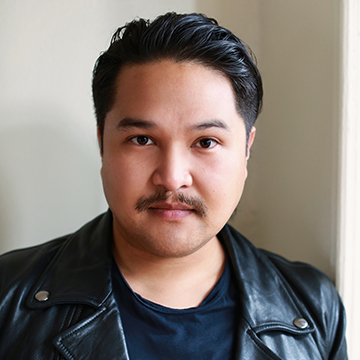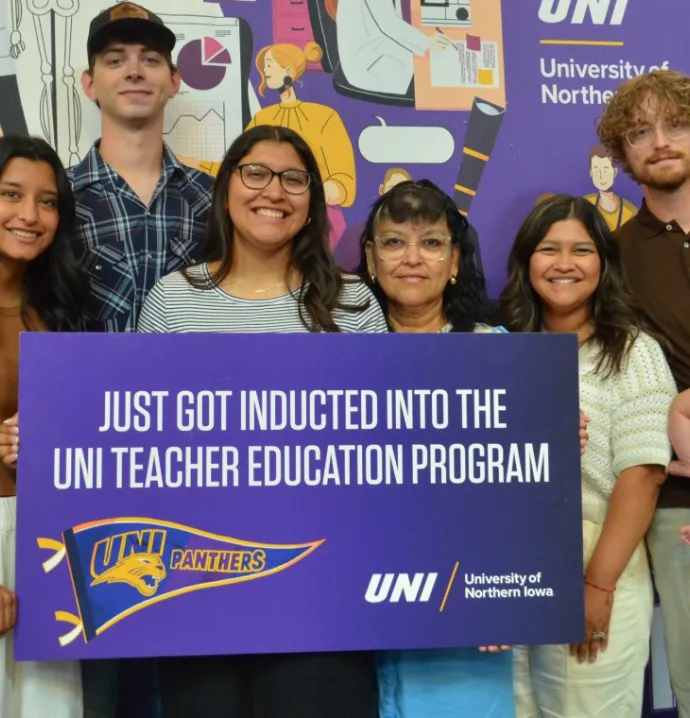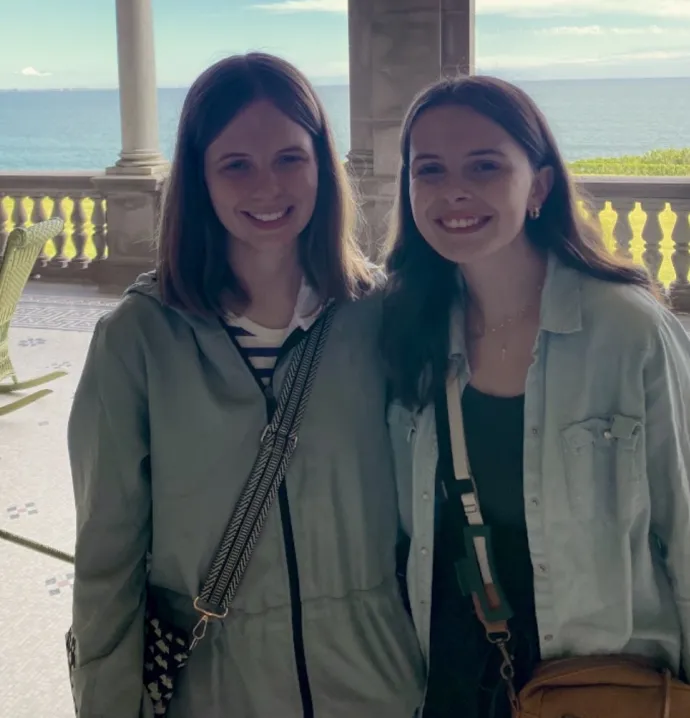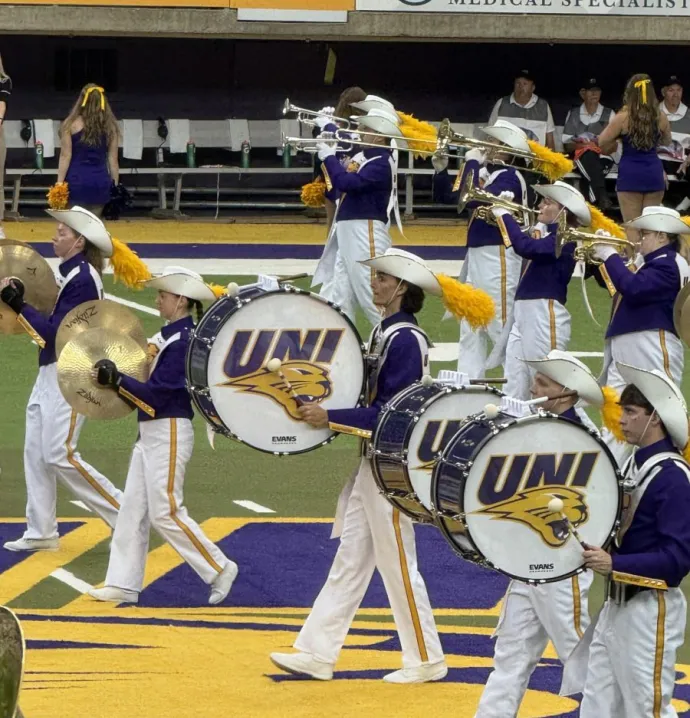A new voice for UNI's opera
A new voice for UNI's opera
New UNI Opera Director Richard Gammon aims to help students become “whole artists” — “fully fledged human beings co-existing on stage” — as he puts it, and his experience creating and directing modern, dance-accompanied operas offers the perfect vehicle to do just that.
“I encourage my students to explore the humanity of their characters as much as the art that they’re doing,” said Gammon, who initially studied to become a tenor opera singer. He started singing in community theater at 14, then earned a bachelor’s of music in vocal performance from the New England Conservatory of Music in Boston, a master’s in opera and musical theater performance from Southern Illinois University in Carbondale, Illinois, and an artist’s certificate — a post-master’s degree in artists’ performance — from the University of Missouri-Kansas City.
Gammon grew up in Brunswick, Maine — known as the home of Bowdoin College — in a Filipino-American family. His mother, who immigrated to America when she was a teenager, worked as a seamstress, while his father, a Maine native, served in the military.
He learned from a young age what it was like to stand out in a majority-white community. “It was obvious – there were very few brown people in my high school and in my community,” he said. “It’s a struggle to identify with each part [of one’s identity] for people of mixed race.”
Gammon said his move to Boston to study at the conservatory led to “a greater journey of self-discovery” because he felt surrounded by opportunity and other people who came from diverse backgrounds. His appreciation for opera - and passion to make it more accessible for everyone - deepened.
“It’s not an art form for a certain class of people or for people who have nothing to do with our own culture,” he said. “It’s not about wearing a tuxedo and gown. It’s about storytelling.
“I am always drawn to modern interpretations of period pieces,” Gammon said. “I appreciate period or ‘traditional’ productions and think they are beautiful; but equally necessary, exciting and important are the updated/concept pieces that I tend to direct.”
In short, he said: “I personally identify with a character wearing jeans [more] than one wearing a petticoat.”
As a teacher focused on storytelling, Gammon encourages his students to delve deeply into the text, particularly at a time when COVID-19 prevents in-person singing in class. “I greatly value experimentation and fostering the safest environment possible so I can celebrate [students’] failures as much as their successes.”
Plumbing those artistic and theatrical depths may come easier now that students have to wear masks, focus on spoken texts, practice in separate rooms and sing over remote Zoom classes.
“It’s so hard to NOT be in the moment right now,” said Gammon, who describes himself as a “strong believer that the arts will bounce back very strongly,” giving new voices an outlet, even as he sympathizes with the pandemic’s devastating effects on the arts.
“I’m consciously choosing to use this time like a working hibernation,” he said. “It’s not product-oriented right now. It’s process-oriented. It does require a lot of discipline. I’m trying to instill that in my students.”
Though UNI is Gammon’s first faculty position, he has worked with young artists’ programs for a decade. Besides his new role, he will continue in his sixth summer as stage director of Opera Maine’s Studio Artist Program, dedicated to helping young artists hone their performance craft.
He started his own directing career at a young age, too. In his final year studying for his artist’s diploma, Gammon was chosen to be a directing fellow at the Wolf Trap Opera Studio.
Gammon credits his friendship and admiration of heralded mezzo-soprano Suzanne Hendrix, the university’s newest voice instructor, as well as his work at Wolf Trap National Park for the Performing Arts with noted alumni such as Megan Grey, who debuted at the Met last year as Kate Pinkerton in “Madama Butterfly,” with enabling him to recognize the UNI music program’s ability to give students the tools for success.
Indeed, Gammon’s initial thoughts of shifting to director from singer started when his fellow students in an opera workshop class were so impressed with his self-staged arias, they asked him to create theirs. The assignment required that the students design their own stage settings and environments to complement the aria.
Gammon, who now sings only for himself, for fun — much to his parents’ and voice teachers’ chagrin, he said — brings other insights and experiences that uniquely fit UNI’s needs. The university counts 60 majors, on average, in undergraduate voice studies, and five to eight in graduate voice studies.
He will have plenty of opportunities to stage his pieces at UNI’s Gallagher-Bluedorn Performing Arts Center, which seats 1,650 and hosts a major opera performance once every two years. The opera director chooses the opera, the singers, hires stage managers and oversees the budget.
Jeffrey Funderburk, director of the School of Music, who started his UNI career 34 years ago as a tuba professor, said Gammon’s rich and varied experiences directing operas and overseeing production will prove great assets to the program.
Gammon’s experience includes directing “Der Kaiser von Atlantis” and “L'île de Merlin” at Wolf Trap Opera; “Gianni Schicchi” and “Buoso's Ghost” at Michigan Opera Theatre; “Madama Butterfly” at Virginia Opera; Jack Perla's “An American Dream” with Opera Maine Studio Artist Program; and “Il combattimento di Tancredi e Clorinda” with lutenist Thomas Dunford at the Kennedy Center (Opera Lafayette), which was named one of the “Top Ten Performances in 2017” by Washington Classical Review.
The opera director “has to have a good sense of the repertoire” in order to quickly match singers with roles, Funderburk said. “You don’t want to get locked into a program and force it through even though you don’t have the right people on deck to do those pieces. That’s a skill.
“That’s going to be a strength for him,” Funderburk said of Gammon. “He’s got great ideas.”




